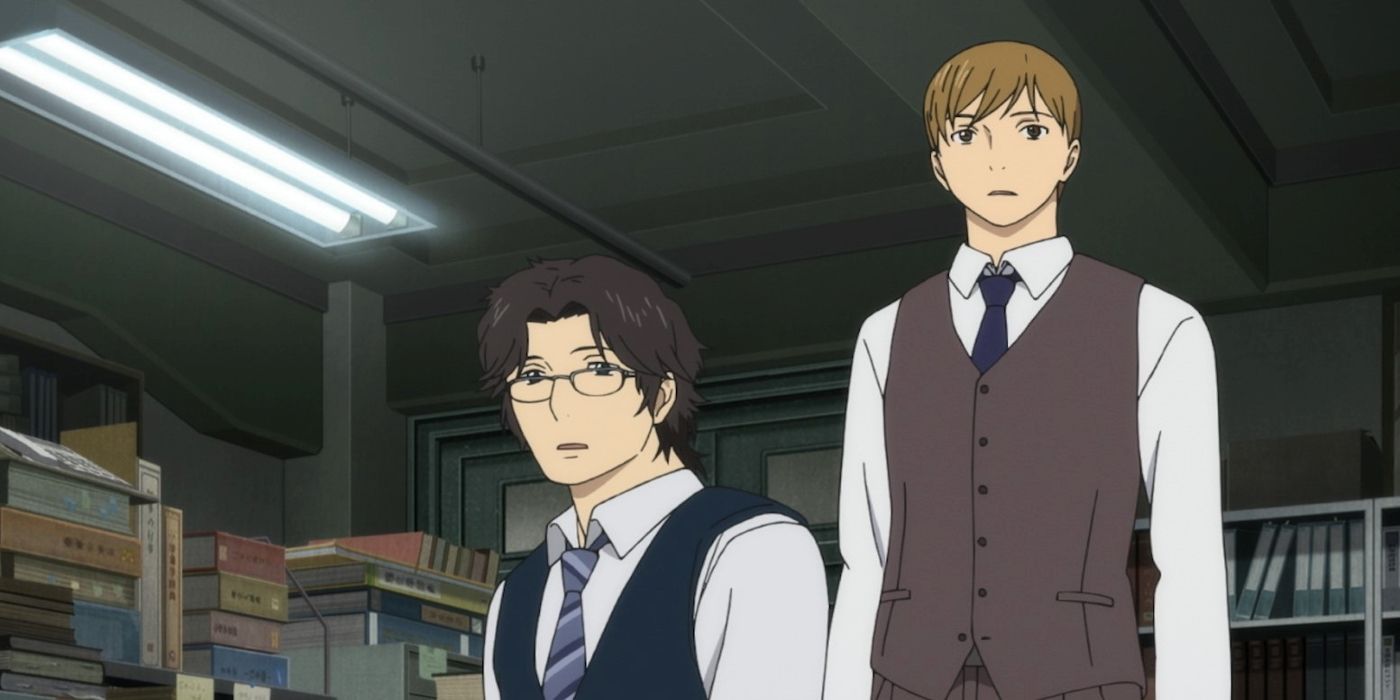Many slice-of-life anime are known for centering around niche pastimes and interests, such as shogi in March Comes in Like a Lion, ramen in Ms. Koizumi Loves Ramen Noodles or babysitting in School Babysitters. These series handle topics that may be uninteresting at first glance, yet their stories keep viewers enthralled. While The Great Passage, an anime about compiling a Japanese dictionary, revolves around potentially one of the dullest subjects, its story is truly compelling.
Commonly known by its Japanese title, Fune wo Amu, this 2016 slice-of-life anime follows introverted and awkward Mitsuya Majime as he is recruited to work with the dictionary editing staff in compiling a new dictionary. His love of words and perseverance allow him to flourish in this role, forming strong friendships and finding love along the way. A love letter to the art of words and dictionary making, The Great Passage presents its story with a soft beauty that pricks and warms the hearts of its viewers.
Perhaps the most captivating aspect of The Great Passage is its intriguing characters. From Majime's clumsy social skills to Nishioka's charisma, each character is well-defined and fleshed out, their personalities establishing a fun dynamic. Viewers easily become invested in the characters, cheering for them both in their efforts to complete the dictionary and in their personal lives. While the characters may encounter setbacks or anxiety, the actual drama is subtle. The series' personalities and situations are not overly exaggerated, allowing for characters that viewers can empathize with. The characters' love of words is also contagious, the poetic contemplations adding further beauty to the series and sparking viewers' curiosity.
Not only will viewers find the characters themselves endearing, but they will also enjoy watching the strong bonds of friendship develop between Majime and the members of the dictionary editing staff. Awkward and lonesome at the beginning of the series, Majime slowly opens up to those he works with over the course of the series, becoming comfortable in his role and around his coworkers. Majime's friendship with Nishioka is especially heartwarming. While Nishioka is initially annoyed by Majime's social ineptness, he grows fond of him as he comes to understand him better. The portrayal of Majime's friendships highlights his growing confidence in himself, with those around him and in his calling.
The Great Passage may not primarily be a love story, but its soft development of Majime's romance with his landlord's granddaughter Kaguya only endears the characters to viewers even more. While not dramatic, Majime's confession to Kaguya is perhaps one of the most profound romantic scenes in a slice-of-life anime. Its quiet tone artfully conveys their budding feelings while staying true to their personalities. Majime and Kaguya's relationship does not take center stage, but its subtle presence emphasizes the emotional resonance of the series.
Although bibliophiles and vocabulary enthusiasts will certainly enjoy The Great Passage for its subject matter, it is not simply an anime about compiling a dictionary. Instead, it is the story of passionate people working toward something they love, supporting one another in their calling. Viewers will enjoy rooting for the characters and may find a greater appreciation in words and their meanings along the way.


No comments:
Post a Comment